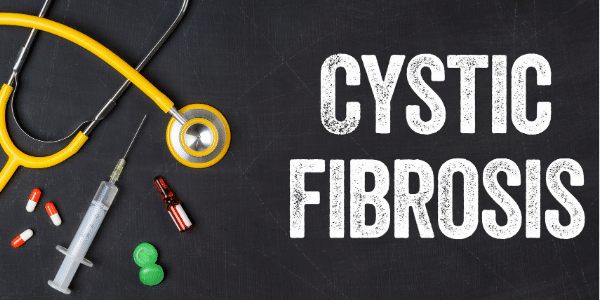Many people have heard of cystic fibrosis but are unsure what the disorder entails. This genetic condition impacts the lungs, intestines, kidneys, liver and pancreas. Long-term symptoms of the disorder include breathing difficulties, excess mucus and frequent infections in the lungs. Some other potential signs of cystic fibrosis include infertility in many males, poor growth, sinus infections and more. The type and number of symptoms differ.
The Genetic Component
As mentioned before, cystic fibrosis is an inheritable condition that’s caused when the CFTR protein is mutated in both copies. Individuals that have a single copy that’s functional are carriers of the condition, but they can typically lead mostly healthy lives. The CFTR protein is involved in the development of mucus, digestive fluids and sweat. When it’s not functioning properly, secretions of fluid that’s typically thin could end up being thicker than normal. Cystic fibrosis is typically diagnosed through genetic testing and/or a sweat test. Some countries screen infants right after they’re born in order to ensure early detection.
LifeSpans of Those With Cystic Fibrosis
Those suffering from cystic fibrosis may experience a shorter life span than usual. Thanks to a better understanding of the condition and improved healthcare, the life expectancy of people with cystic fibrosis is increasing. This has also led to a tiny increase in the number of people with cystic fibrosis worldwide. While it’s definitely positive that individuals with this condition are able to live longer, new problems start to arise in the population that’s aging with the condition. Not only are those diagnosed with the disorder experiencing more issues as they age, but there’s also greater stress on caregivers due to these changes. Here, we’ll explore some challenges that come along with aging and cystic fibrosis.
 Fertility Problems
Fertility Problems
Most individuals with the disorder can have a typical sex life, but nearly all men (roughly 98 percent) are infertile. The vas deferens doesn’t develop correctly due to the condition. It’s possible for those with fertility issues to undergo a type of IVF known as intracytoplasmic sperm injection. Most women who suffer from cystic fibrosis, on the other hand, can get pregnant with little to no issues. However, there are some women who will experience puberty later than normal.
Evolving Medical Needs
Although the condition remains the same, the symptoms and problems that those with cystic fibrosis face will change throughout their lives. It’s not uncommon for people to have to switch medication, change their physiotherapy routine and adopt other treatments while letting some go. The right treatment will all depend on the needs and condition of the patient, which will inevitably change over time. As patients transfer into adulthood, they’ll need to learn how to take their care into their own hands. From treatments and medications to the correct doctors and insurance, it’s a lifelong balance for most cystic fibrosis patients.
Financial Planning
With many sufferers of cystic fibrosis requiring medical attention throughout their life, in the form of medication, treatment, physical therapy and more, financial planning is a major factor that people need to consider. You might have to plan ahead for extended durations for situations when you’re out of work due to a prolonged sickness. Pensions have also become a common concern for cystic fibrosis patients who continue to live longer and longer. Fortunately, many governments offer some form of assistance for those in this position.
Social and Emotional Tolls
Living with any chronic condition presents unique social and emotional challenges. Many people with this genetic condition might find it a struggle at times to experience a “normal” life while managing the problems that arise from their condition. Adults might experience issues associated with their professional and social life. These problems can start to impact a person’s mental and emotional state as well. It’s important for anyone experiencing hardships associated with this condition to reach out to professionals who can help make it easier to cope with cystic fibrosis.
Maintaining a Healthy Diet
Maintaining a healthy diet is an important component of anyone’s health, but for those with this condition, it is even more important. There might be a connection between lung function and body weight. Since some cystic fibrosis patients struggle to maintain a certain level of growth and energy intake despite being on a diet high in fats and supplements, it’s necessary at times to use alternative methods to get extra nutrition.






